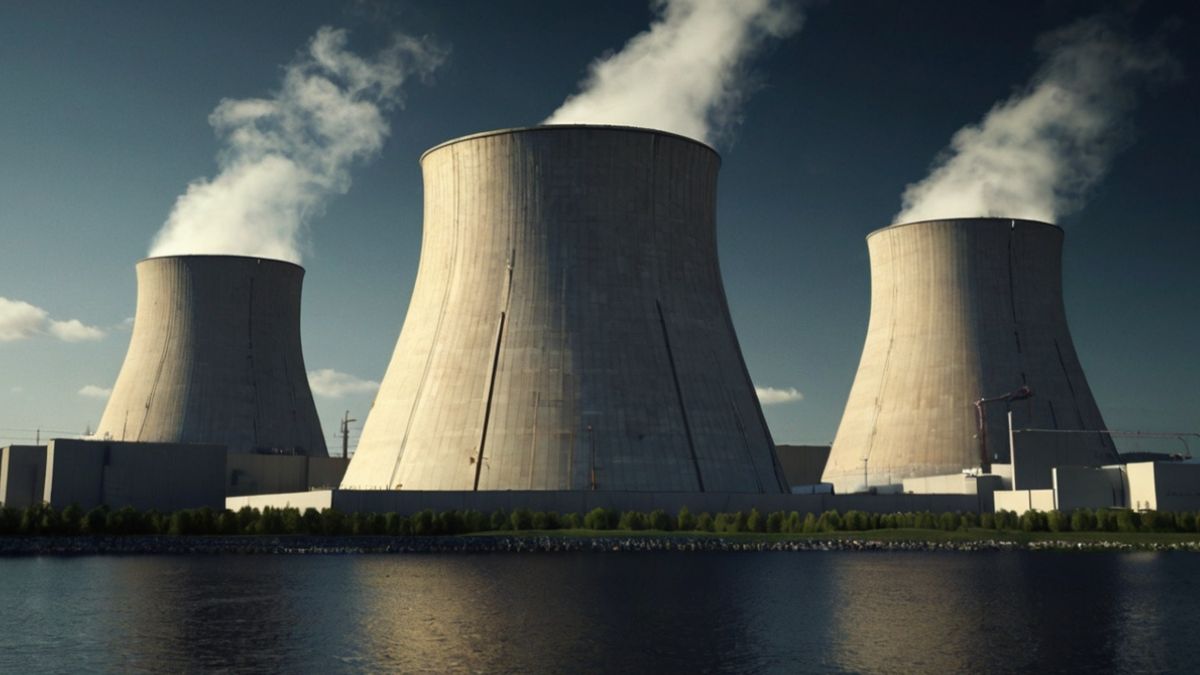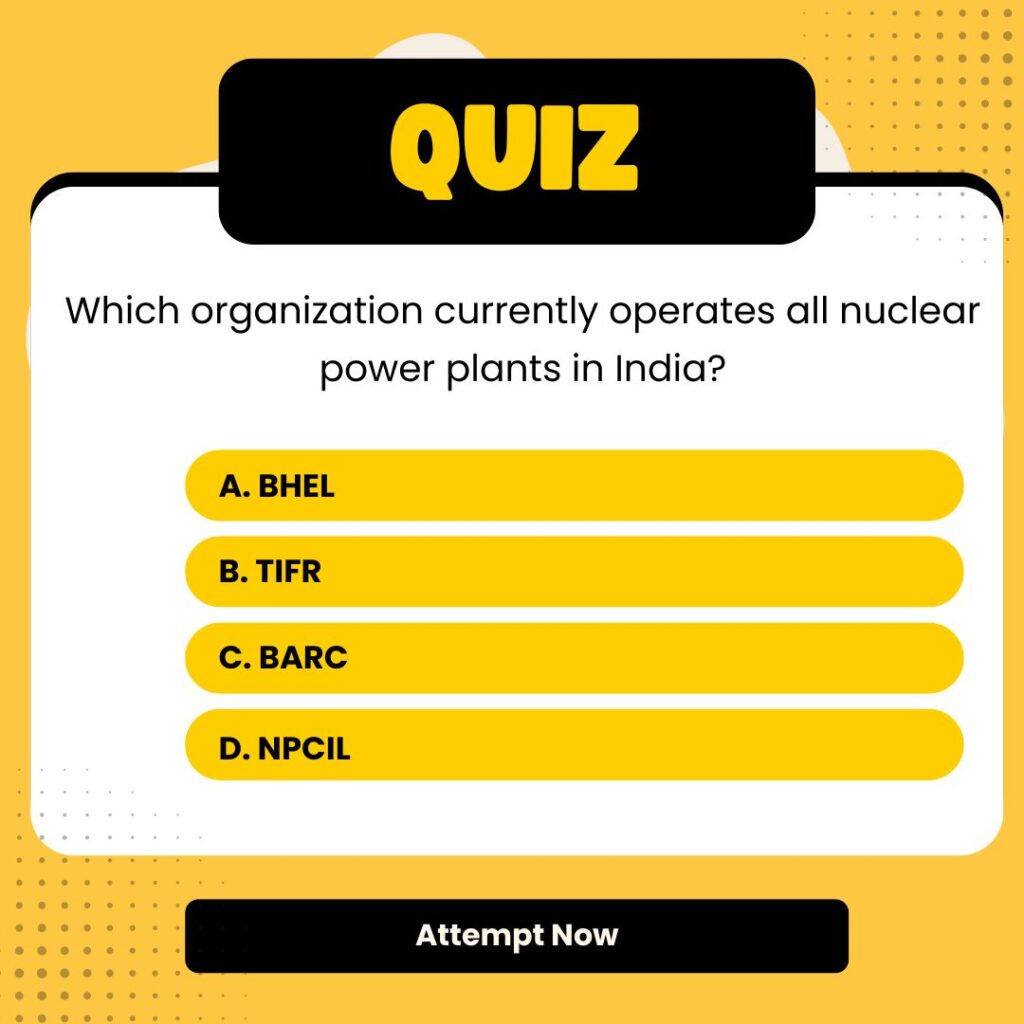In a significant policy shift, the Indian government is planning to allow private sector operators to participate in the country’s nuclear energy sector for the first time. Alongside this move, it also proposes to limit their liability, a step seen as essential to attract private investments and technology partnerships. This development comes in the backdrop of the United States permitting its firms to manufacture nuclear equipment and undertake design work in India, reflecting deepening Indo-U.S. civil nuclear cooperation.
Why in News?
The government is preparing to revamp its nuclear energy regulations to permit private operators, reducing liability risks that have long been a deterrent for private and foreign participation. This comes shortly after the U.S. government’s decision to allow its nuclear firms to collaborate with India — a strategic move that will strengthen India’s civil nuclear capabilities and energy security.
Private Participation
- For the first time, private companies will be allowed to operate nuclear power plants in India.
- This move aligns with global best practices and aims to meet India’s growing energy demands.
Limited Liability Clause
- The government plans to cap or limit the liability of private operators in the event of a nuclear accident.
- Liability concerns have long stalled foreign and private investment in nuclear energy.
Legal Adjustments
- Amendments to the Civil Liability for Nuclear Damage Act, 2010 (CLND Act) may be considered.
- The Nuclear Power Corporation of India Limited (NPCIL) has so far been the sole operator.
U.S. Involvement
- The U.S. recently permitted its companies to manufacture nuclear equipment and perform design work in India.
- This marks an important step forward in the Indo-U.S. nuclear deal signed in 2008.
Significance
- Enhances energy security by boosting clean and base-load energy.
- Encourages technology transfer, innovation, and infrastructure development.
- India aims to increase its nuclear power capacity to 22 GW by 2031.
Current Nuclear Scenario
- India has 22 operational nuclear reactors.
- All existing reactors are state-owned, primarily by NPCIL.
- Nuclear power contributes around 3% of India’s electricity mix.
| Summary/Static | Details |
| Why in the news? | India Opens Nuclear Energy Sector to Private Operators with Liability Reform |
| Policy Change | Private sector to be allowed in nuclear energy operations |
| Legal Shift | Proposal to limit operator liability under CLND Act |
| U.S. Link | U.S. allows its firms to collaborate in India |
| Benefits | Energy security, tech access, private investment |
| Current Status | All reactors state-owned; 3% share in electricity |
| Goal | Goal 22 GW nuclear power capacity by 2031 |




 Gender Budgeting In India Jumps 11.55%: ...
Gender Budgeting In India Jumps 11.55%: ...
 NGT Gives Nod to ₹81,000 Crore Great Nic...
NGT Gives Nod to ₹81,000 Crore Great Nic...
 Highways That Help Honeybees? NHAI’s ‘Be...
Highways That Help Honeybees? NHAI’s ‘Be...








